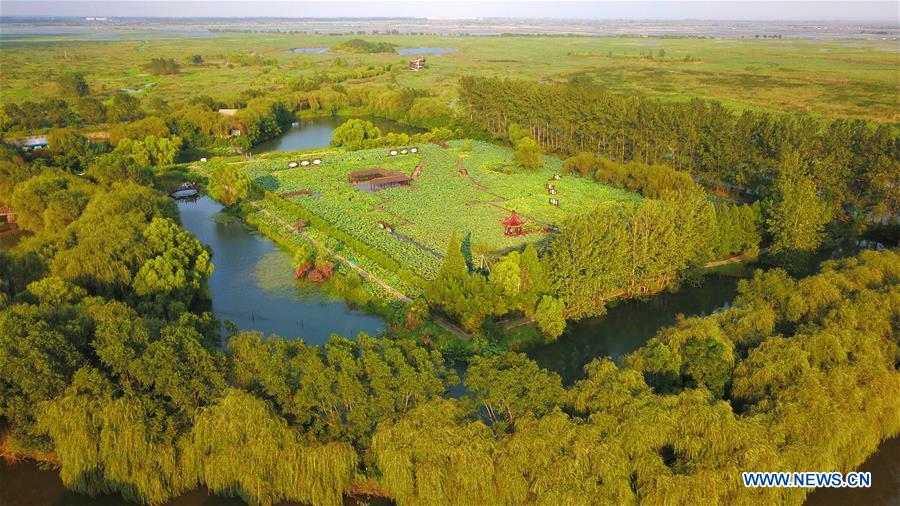'Timetable' needed to phase out pollution


Senior legislator says road map should be clear, incentives would help companies
A senior national legislator and leading environmental expert has called on the government to set a transitional strategy with transparent, predictable and gradually tighter policies for governing industrial pollution as the country switches to green, low-carbon and high-quality development.
Professor Wang Yi, a member of the Standing Committee of the National People's Congress and the NPC Committee of Environment Protection and Resource Conservation, made the comment in an interview with China Daily on the sidelines of the NPC session on Tuesday.
He also said companies should be given performance-based incentives to go green.
Most companies will not go green themselves unless guided by policies and standards, Wang said.
"You have to make them well-informed that they will have to pay a price for failure to meet pollution discharge standards," he said.
He added, however, that the government cannot raise the standards in a single leap.
"There should be a road map, timetable and prioritization for implementation of environmental policies and pollution discharge standards in a phased manner, and enterprises should be clearly informed about it," he said.
Comparing environmental management to traffic lights, he said many red and green lights are currently in place, but no flashing yellow lights to indicate a grace period. They are seldom used in environmental law enforcement in the country, he said.
China's commitment to a green and high-quality development path cannot be fulfilled in one stroke but must be done step by step, he said.
The government should also adjust its anti-pollution policies in light of structural changes and the processes of production and consumption, rather than concentrating mainly on end-of-pipe pollution control, Wang said.
"Environmental protection and green development are hot topics in China. Most of the authorities' measures to reach the goal, however, are about restrictions. Few incentives are available," he said.
The government should offer incentives to reward companies that stand out in reducing their discharges, instead of only imposing penalties on environmental violators.
According to the Ministry of Ecology and Environment, fines imposed for environmental violations increased by 32 percent year-on-year to almost 15.3 billion yuan ($2.3 billion) in 2018.
While the government could encourage favorable loan rates for companies with outstanding performance in the green transition, another approach worth trying might be the establishment of a green transition and development fund to reward such enterprises, he said.
He said the government could initiate such a fund either by using the money collected from environmental violators or by setting up a special budget.
The central authorities have attached great importance to green development. During a panel discussion with NPC deputies from the Inner Mongolia autonomous region on March 5, President Xi Jinping warned against the tendency of sacrificing the environment for economic growth and said no sacrifice of the environment is allowed when encountering "just a little difficulty in economic development".
In this year's Government Work Report delivered to the national legislature on the same day, Premier Li Keqiang referred to green development as "a critical element of modernizing an economy" and "a fundamental solution to pollution".
- Rural China tackles hefty bride prices to ease marriage burdens
- Market fire causes multiple casualties in North China's Hebei
- 'Ferryman of souls' escorts cremains of veterans from Taiwan to mainland home
- China announces month-long online shopping event for Spring Festival
- Hong Kong-Zhuhai-Macao Bridge reports record high passenger flows in 2024
- China launches action plan to tackle dementia amid aging population challenge





































